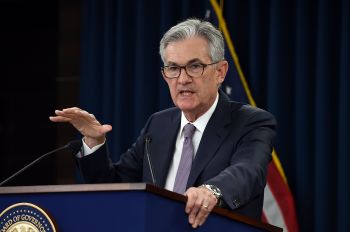Kai Ryssdal: Humor me for a minute and take a look in your wallet. Whaddya got: $10, maybe $20? Maybe more?
Money. It’s the bills we pay. It’s the debt we’re in. It’s the paycheck we get every week or two. But day to day, mostly it’s cash.
David Wolman’s been thinking about cash a lot lately. And he doesn’t like it one bit. His new book is called, appropriately enough, “The End of Money.” David, welcome to the program.
David Wolman: Thank you Kai.
Ryssdal: Why do you want to take our money away, man?
Wolman: Well, so the project began when I got curious about this campaign to get rid of the penny. But then the argument started to resonate with me, and I said, well wait a minute, why just the penny — what about the nickel and the quarter and the $10 bill? I decided, well I’ll try to not use and not even touch cash for an entire year, and let’s see how that would go, whether it’s at the parking meter or traveling overseas. You know, there are very legitimate arguments to made in defense of cash, but what I wanted to do was subject it to a little bit scrutiny because it seems to have skated by for centuries now without anybody wondering ‘What are the real costs here?’
Ryssdal: Well let’s do that. Let’s just tick down the list. And first of all, as you have pointed out, cash is not cheap. It’s an expensive way to conduct transactions.
Wolman: Right. So first of all, you have to get it out there to the world, to all those ATMs and cash registers. And then you have to secure it, and maybe move it some more and count it, and make sure your employees aren’t skimming off the top. Then you have cash as the currency of crime. 2009, 2010 — there were like 10,000 bank robberies just in America.
Ryssdal: So if you didn’t need banks to put your cash in, you wouldn’t have bank robberies, right?
Wolman: Right. And in Sweden, in fact, you have this union of bank worker employees saying let’s get rid of cash altogether, because they’re tired of the hazard of robberies.
Ryssdal: There’s another thing that you go into in some depth in the book, and it becomes a little bit your — OK, this is a strong word — obsession as you went about your experiment with living cashless for a while in this society. And it’s a thing our mothers always told us when we were kids, and we were like, ‘What do you mean money’s dirty?’ I mean, it’s just filthy.
Wolman: It really is. I mean, other than maybe handshakes or grabbing a handle on a bus just after someone else has, this is sort of the top three or four way that we exchange each other’s communicable goodies. There’s a wild study that some Swiss researchers have conducted trying to see how much they could grow the influenza virus on some dirty, humid banknotes in a dark and scary place.
Ryssdal: Well, wait — how did it go?
Wolman: It grew surprisingly fast. Then I shipped that study off to a friend at the CDC and she said, look, unless you’re literally blowing your nose right into it and putting it in a human wallet and not letting it rub up against a bunch of other leather, maybe — only maybe — would the virus remain intact.
Ryssdal: There’s a socioeconomic part of this as well, though, right? If you get rid of cash, which is among the key ways that people who don’t have a lot of money spend money, then if you go electronic — whether it’s credit cards or mobile payments or whatever — are you going to disenfranchise them?
Wolman: If you get rid of cash tomorrow: yes, absolutely. The doormen and the waiters of the world out there are probably not loving this idea, but in the long-term, if you can imagine 10, 15, 20 years from now, if a substitute technology or technologies is really there, then you’re actually helping the 99 percent who are kind of stuck in the cash economy. And if you’re excluded from the formal economy, you can’t have a bank account, you can’t earn credit to maybe later get a student loan or get a mortgage. You’re stuck with cash stuffed in a tea can that’s stored in your apartment that you hope somebody isn’t going to steal. So that’s sort of the idea that I was probing, but you’re absolutely right. This would be foolhardy if we outlawed cash tomorrow.
Ryssdal: David Wolman, his book is called “The End of Money.” David, thanks a lot.
Wolman: Thank you.
There’s a lot happening in the world. Through it all, Marketplace is here for you.
You rely on Marketplace to break down the world’s events and tell you how it affects you in a fact-based, approachable way. We rely on your financial support to keep making that possible.
Your donation today powers the independent journalism that you rely on. For just $5/month, you can help sustain Marketplace so we can keep reporting on the things that matter to you.


















